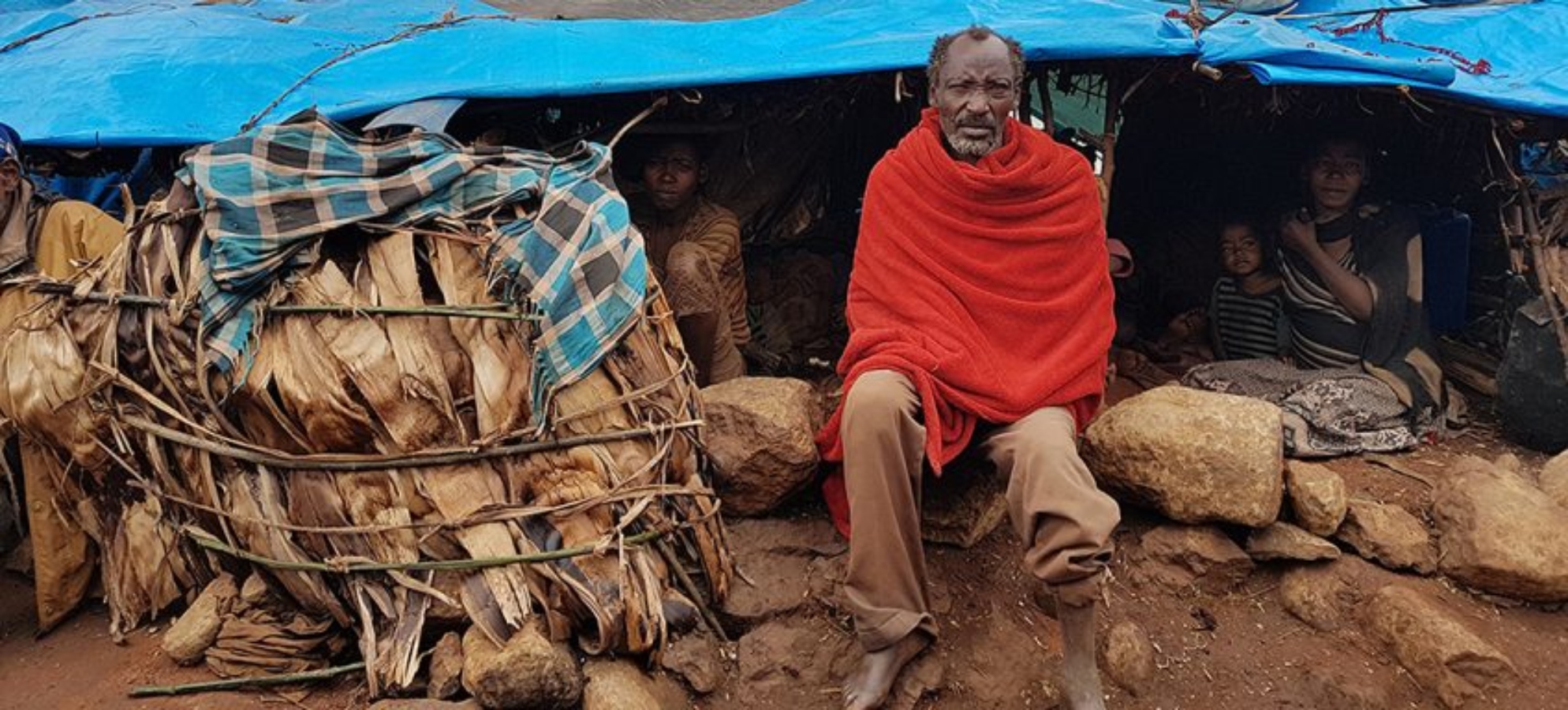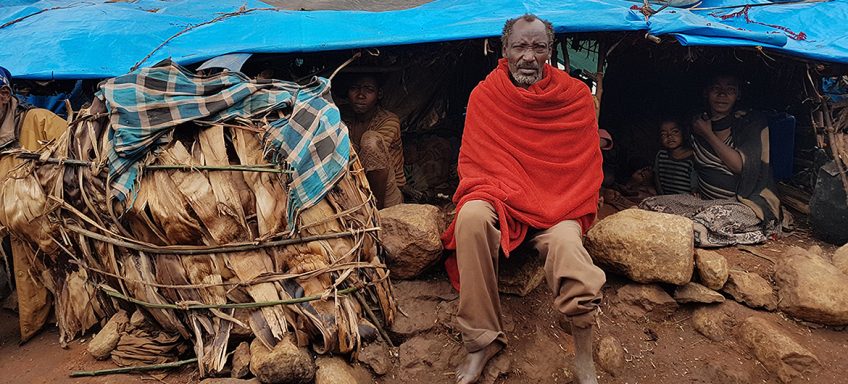
Expert Group Meeting on Older Persons in Emergency Crises United Nations Headquarters, Room S-1520 15-17 May 2019, New York
The occurrence and duration of emergency crises have increased in the past years. Between 2005 and 2017 the number of crises receiving an international response grew from 16 to 30, and their average duration rose from 4 to 7 years. Emergency crises comprise human-made disasters like conflicts, and natural disasters such as hurricanes, storms or droughts. Natural and human-made disasters are often intertwined.
For example, in 2017 water was determined to play a major role in conflict in at least 45 countries. Evidence suggests that as climate change intensifies, the number of emergency crises will increase. Exclusion faced by persons due to individual and social characteristics, such as age, sex, marital status, socio-economic factors, and health status, can determine their capacity to respond to crises, as well as their access to mitigation, adaptation and relief resources.
Older persons are particularly at risk in disasters. Health conditions, such as impaired physical mobility, diminished sensory awareness or chronic illness, as well as social and economic disadvantages, can hinder the ability of many older persons to prepare and adapt to disasters. Older women can be more at risk than their male counterparts because on average they outlive men and are more often widowed and alone. Those that are less educated, unskilled, and poor are more likely to be victims of physical, financial, familial and sexual abuse which can be exacerbated in emergency situations.
In emergency settings, where access to resources and services may be uneven, the overlook of the specific needs and challenges faced by older persons can have dire consequences for their well-being. Ageist attitudes can exacerbate exclusion and reinforce the loss of control over community resources and assets often experienced by older persons in emergency crises.
Older persons are also harmed by ageist assumptions that they will be taken care of by family members. The meeting will bring together international experts and relevant stakeholders to explore and propose some key recommendations on the issue of older persons in emergency crises both as a group that faces specific risks and as a group to be tapped for their experience in national and international emergency relief systems.
The conclusions and recommendations of this expert group meeting will serve to position UNDESA to better support Member States in the context of two important policy processes: (a) the implementation of the 2030 Agenda for Sustainable Development (b) the General Assembly’s Open-ended Working Group on Ageing
Final Report of the Expert Group Meeting
Papers
- Older Persons in Humanitarian Emergencies- The Human Rights Imperative by Khaled Hassine
- Mapping of existing normative frameworks and guidelines relevant to older people in conflict and disasters: Implications for policy and practice by Dr. Supriya Akerkar
- Older Persons in Forced Displacement - Intersecting Risks by Kirstin Lange
- Abuse, Neglect and Violence against Older Persons by Silvia Perel Levin
- Minimum Standards for Age and Disability Inclusion in Humanitarian Action by Sofia Rivas Rufin
- What Older People Say About Their Experiences in Humanitarian Situations by Verity McGivern
- Demographics of Ageing by Ann Pawliczko and Rene Desiderio
- Abuse, Neglect and Violence Against Older Persons by Rawle Andrews Jr.
- Older Women in Emergency Crises: Vulnerabilities, Capacities and Opportunities by Bela Kapur
- Social Support for Older Persons: Malaysian Perspective by Fatimah Zuraidah Binti Salleh
Presentations
- Abuse, Neglect and Violence against Older Persons by Silvia Perel Levin
- Beneficiaries identification and targeting criteria with older persons by William Ngabonziza
- Demographics of Ageing and the Implications for Humanitarian Crises by Ann Pawliczko
- Humanitarian architecture responding to the needs of older men and women in emergencies by April Pham
- Impact of Conflict and Displacement in Myanmar by Matthew Wells
- Left behind, access to rights and basic needs for the elderly by Sari Mutia Timur
- Mapping of existing normative frameworks and guidelines by Supriya Akerkar
- Minimum Standards for Age and Disability Inclusion in Humanitarian Action by Sofia Rivas Rufin
- Navigating the New Normal Key Considerations for Older Adults, Family Caregivers and US-Based NGO by Rawle Andrews Jr.
- Older Persons in Emergencies by Richard Blewitt
- Older Persons in Forces Displacement Intersecting Risks by Kirstin Lange
- Older Persons in Emergency Crises - The Human Rights Imperative by Khaled Hassine
- Social Support for Older Persons by Fatimah Zuraidah Binti Salleh
- What Older People Say About Their Experiences in Humanitarian Situations by Verity McGivern
Resources
- Fleeing my Whole Life by Amnesty International
- World Disasters Report 2018 by International Federation of Red Cross and Red Crescent Societies
- Forgotten in a Crisis Addressing Dementia in Humanitarian Response by Sherena Corfield, Amy Little and Lizzie Gerrard – Global Alzheimer’s & Dementia Action Alliance
- Convention on the Elimination of All Forms of Discrimination against Women
- South Sudan: People with Disabilities, Older People Face Danger
- “Bangladesh Is Not My Country” The Plight of Rohingya Refugees from Myanmar
- Ukraine: Ensure All Pensioners Have Access to Benefits
- Ukraine: Barriers to Free Movement for Older People
- Making Life a Little Easier on Ukraine’s Front Lines
- EU: Older Refugees Stranded in Greece
- Older Syrian Refugee Dies Waiting for Family Reunification
- Greece: Dire Conditions for Asylum Seekers on Lesbos
- UN: Shine Spotlight on Brutality in Cameroon
- Venezuela’s Left-Behind Generation
 Welcome to the United Nations
Welcome to the United Nations
